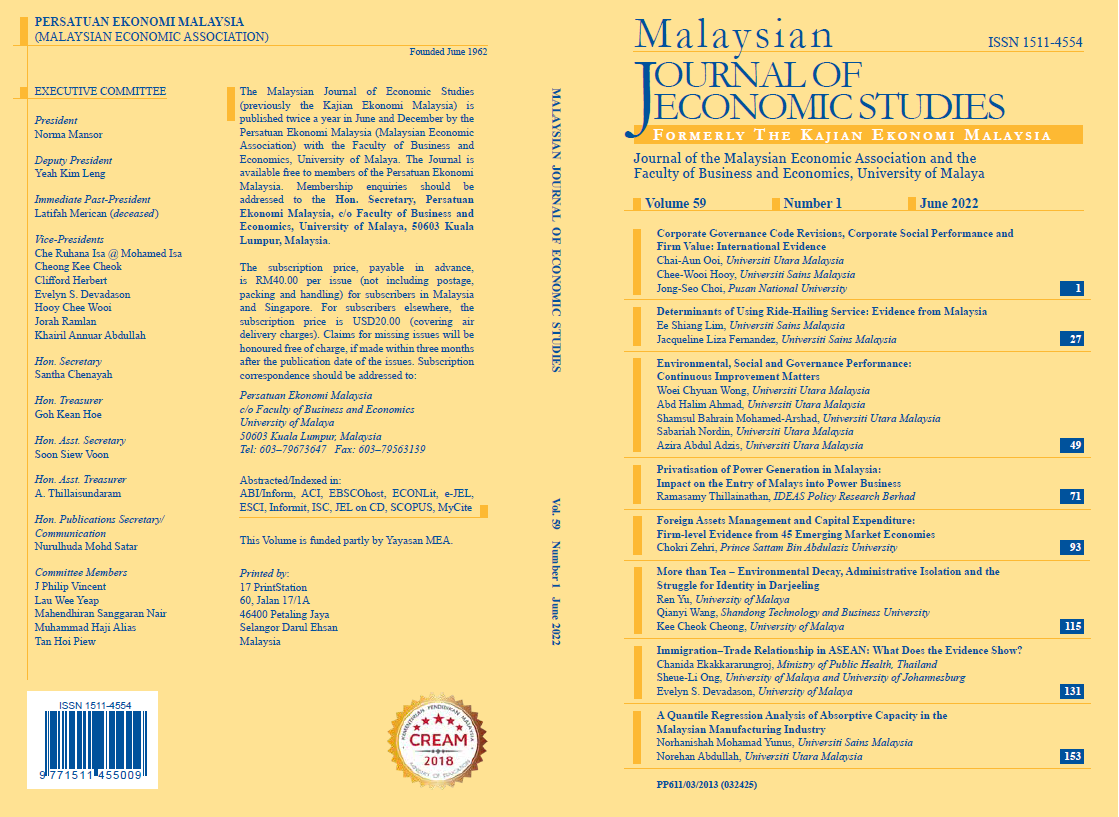Foreign Assets Management and Capital Expenditure: Firm-Level Evidence from 45 Emerging Market Economies
DOI:
https://doi.org/10.22452/MJES.vol59no1.5Keywords:
Foreign assets, financial shocks, capital expenditureAbstract
This paper investigates the effects of foreign assets management (FAM), led by policymakers in emerging market economies, on companies’ capital expenditure with international financial shocks (IFS). Using company-level data from 45 emerging market economies from 2005 to 2020, we employed a multiplicative regression setup for Tobin’s Q ratio capital expenditure framework. First, our findings show that FAM positively affects capital expenditure; this impact is reinforced with stronger detrimental IFS. Second, the capacity to access foreign funding supports FAM policy, and more financially constrained companies are less responsive to FAM. Third, capital controls and macroprudential policies support FAM – they create a protective policy mix in the IFS context. The statistical significance of FAM’s impact on companies’ capital expenditure has an economic implication and is pertinent to the global economy. This study recommends coordinating macro-management policies to isolate companies’ capital expenditure from IFS effectively.







